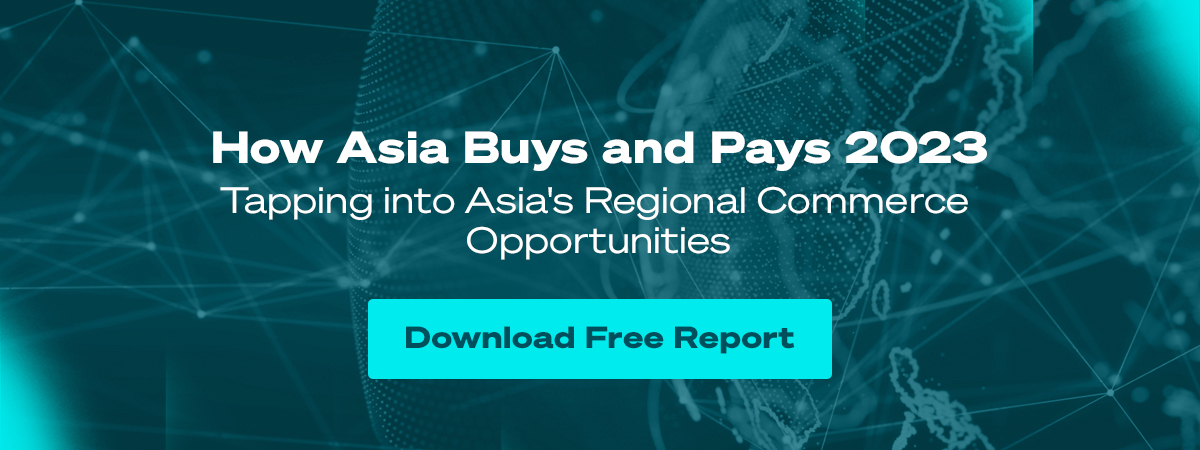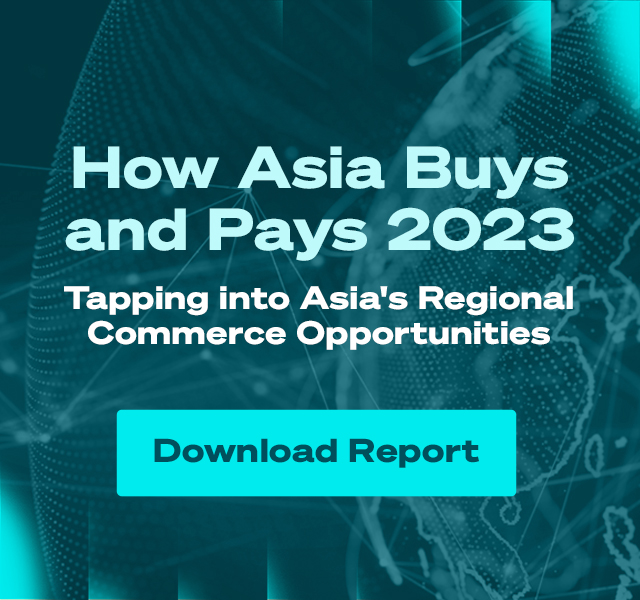
Payments Powerhouses: Exploring Innovation in BNPL with Pine Labs' Dheeraj Chowdry
In this instalment of Payments Powerhouses, we discuss BNPL trends in Southeast Asia, consumer purchasing patterns, and more with Dheeraj Chowdry, Chief Business Officer for Southeast Asia at Pine Labs.
Dheeraj Chowdhry is the Chief Business Officer of Pine Labs in Southeast Asia. Pine Labs is a leading merchant commerce omnichannel platform operating in India and Southeast Asia. Over a career in banking and fintech spanning some 20 years, Dheeraj has held executive leadership positions at Bank of America, Standard Chartered, ABN AMRO / RBS, ANZ, American Express, and Funding Societies.
Hello Dheeraj! Tell us more about your journey in fintech and banking.
Dheeraj: I have been a banker for about 20 years, specialising in consumer and commercial banking. I’ve worked for five multinational banks across five geographies, managing six markets in total. My last banking role was with American Express before transitioning to the fintech space.
Tell us about your current role as the Chief Business Officer for Pine Labs and Qwikcilver in Southeast Asia.
In Southeast Asia, there are three primary focus areas for the Pine Labs group: Pine Labs, Qwikcilver, and Fave. My role is to manage the business functions of Pine Labs and Qwikcilver in Southeast Asia, and put in the best efforts to make each of these business functions grow.
As of today, Pine Labs has empowered ~259,000 merchants in India and Southeast Asia to offer a wide range of point-of-sale payment methods such as debit cards, credit cards, internet banking, mobile wallets, and QR payments.
As far as Qwikcilver is concerned, it was acquired by Pine Labs in 2019 and today serves leading corporates, Fast-Moving Consumer Goods (FMCG) brands, e-commerce companies, the Banking, Financial Services and Insurance (BFSI) sector and the airlines industry, with presence across India, the Middle East, Southeast Asia and Australia. Through Qwikcilver, we build the technology to issue a range of stored-value, prepaid, and closed-loop cards.
What other innovations is Pine Labs developing?
Last year, we launched a softPOS (Software Point of Sale) in India called AllTap, a mobile app that transforms an Android smartphone into a payment acceptance device. This product has the potential to become an important tool to simplify payments for the gig economy, delivery executives, cab drivers, and several other solopreneurs. Pine Labs AllTap is a good solution for merchants in rural areas that have traditionally lacked the wave of PoS terminalisation seen in big cities.
In October 2021, Pine Labs also launched a payment gateway called Plural in India, which serves as a payment aggregator for key payment methods like credit cards, debit cards, and internet banking. Plural comes with customisable rules, allowing merchants to create the best routes for transactions.
And last but not least, Pine Labs is one of India’s leading offline Buy Now, Pay Later (BNPL) providers. We have worked with Mastercard to expand our footprint to Southeast Asia, including Thailand, the Philippines, Vietnam, Singapore, and Indonesia. Recently, we have also announced a partnership with 2C2P to further expand our reach across Southeast Asia and Hong Kong.
Speaking about BNPL, can you share more about today’s BNPL landscape and where Pine Labs sits in that space?
BNPL can be split into two key categories.
First up, we have closed-loop ecosystems, where players work closely with the core BNPL ecosystem. Through bilateral relationships, they enable merchants to offer the BNPL service to their customers. There are two main types of closed-loop ecosystems:
- Standalone: BNPL is their only economic model
- Superapps: BNPL is one of the many customer experience drivers in their business model
The second category of BNPL is network-based, where card customers are offered a seamless method to use the credit limit of their open-loop cards to split their payments into instalments. Pine Labs falls under this category, giving customers greater flexibility to pay offline and online.
How does Pine Labs’ offering differ from other BNPL players?
Instead of the usual arrangement where merchants tend to fund the instalments, we get the brands - these can be electronic or lifestyle brands - to do it. Our incredible tech stack that powers these BNPL transactions on our Point-of-Sale (PoS) terminals is what sets us apart from competition. More than 150 leading Pay Later brands are partnering with us to give customers a much more convenient option to break their full payment into monthly instalments.
Tell us more about how Pine Labs works with banks and other issuers or acquirers.
We bring competing banks on our common platform and give each of their card-holding customers an option to get their regular purchase converted into installments. We have more than 30 issuers and acquirers on our network as of today.
How does Pine Labs enhance the attractiveness of installment payment options to the consumer?
While it is the banks and the brands that curate and determine the offers, we provide a technologically advanced platform where these offers can be seamlessly availed to the end customer. Our platform is built for speed and is equipped to ensure all transactions are processed seamlessly and in a secure manner. We own the experience and ensure it is the most attractive for both our merchant partners and their customers.
How do you think BNPL will impact Southeast Asia’s ecommerce industry?
The impact is expected to be significant. In Singapore alone, BNPL is predicted to be the fastest growing online payments method by 2025 and as per the 2022 Global Payments Report by Worldpay from FIS, BNPL is expected to double their share of e-commerce transaction value from 4 to 8 percent. In a survey of 1,008 Singaporeans over 16 years old, 38% have used BNPL.
Looking at the other countries in Southeast Asia like Malaysia, Indonesia, and Thailand, BNPL is growing or has the potential to grow in popularity as more consumers become aware of the benefits tied to this payment method.
What deters consumers from using digital payments to pay for their purchases?
There could be a number of reasons behind the reluctance of some consumers. Access to digitally-enabled merchants is the key to getting consumers on board. However, many merchants are either in the process of becoming digitally enabled or have not started their digital transformation journey yet. Going forward, the need to build awareness around digital payments will be the key.
On the merchant side, consumers are often reluctant to pay via digital modes of payments due to there being a limited range of payment options for them to choose from. So, the key digital payment methods should be made available at the offline point of sale – payment options like credit and debit cards, digital wallets, point-based conversions, and so on.
Lastly, online cart abandonment is one of the major pain points for most e-commerce businesses to deal with. From lengthy and complicated checkout processes to trust issues with payment, and fewer payment options during checkout, online cart abandonment is something we are trying to address with the recent launch of Plural.
Circling back, you’ve also mentioned serving businesses with solutions like closed-loop merchant cards. What pain points do these aim to address?
Closed-loop merchant cards were devised as a solution for merchants looking to foster loyalty among their consumers. These cards can only be used to purchase items at their respective merchant establishments, and they act as an incentivising medium for customers to return for repeat purchases. Some of the more common closed-loop merchant cards include gift cards and e-vouchers.
Qwikcilver is behind closed-loop merchant cards in Singapore for major retail conglomerates like CapitaLand, Frasers, and Muji – what this means is that we power the redemption of card points and vouchers issued by these companies.
Let’s round up our discussion with some fun questions! What hobbies do you indulge in when you’re not wrapping your head around fintech?
I’m quite a movie buff! Netflix is my best friend on this front. I also enjoy reading, playing badminton and cycling.
How would you define a perfect rest day?
My perfect rest day starts with a nice late breakfast. Then I’ll spend the afternoon catching up on a good TV series before ending the day with a glass of wine and jazz in the background.
. . .
Payments Powerhouses is a monthly editorial series interviewing the movers and shakers of the payments and wider fintech industry in Southeast Asia and beyond. If you’d like to be featured on Payments Powerhouses, reach out to us here.

